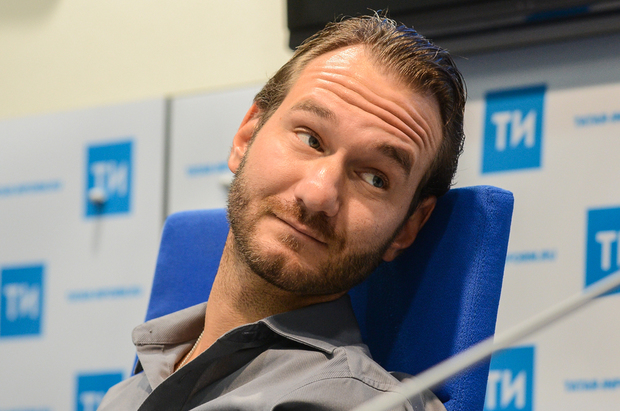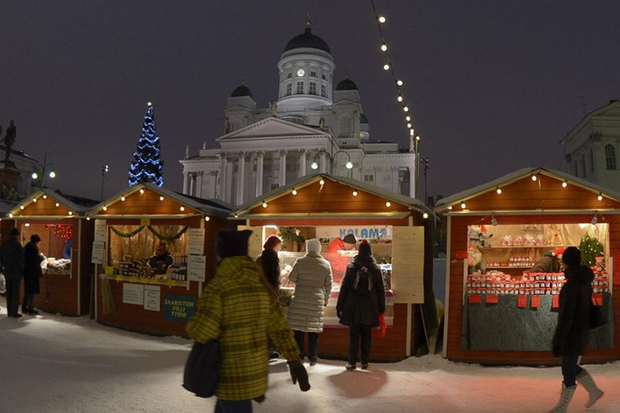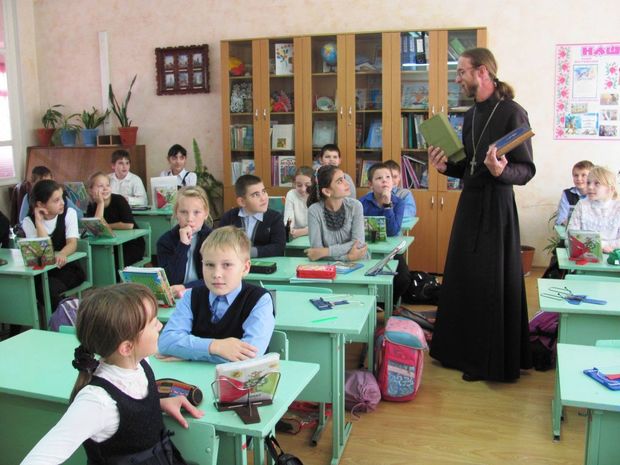Pavel Shmakov: ''In any school there are many problems that could be solved through closer cooperation with the Church''
The Russian-Finnish teacher expresses his opinion on the introduction of a new religious subject in schools
Russian society is actively discussing the attempt to introduce in the school curriculum a new subject called Orthodox Culture, which, as conceived by the initiators (ROC), is to be taught from 1st to 11th grades. Such idea has caused ambiguous reaction of part of the population. However, the columnist of Realnoe Vremya, famous Russian and Finnish teacher Pavel Shmakov believes that the presence of Church institutions in the schools is appropriate. In a newspaper column written specially for our online newspaper, he cites an example of how the relationship between secular education and religion is built in Suomi.
''If one door closes, another opens''
In 2000, I moved to Finland out of bare necessities of life. I got fired from my favourite job. The Academic College was closed — the school of the year in 2003 and 2005, associated UNESCO school from 2004, the federal experimental platform from 2008… The meetings with Mintimer Shaimiev did not help, as well as the letter that children personally sent to Vladimir Putin. I never dreamt of a life abroad. I loved and love Russia. But… I turned out to be unnecessary to my homeland.
Then I read Helen Adams Keller, an American deaf-blind writer, she wrote ''When one door of happiness closes, another opens; but we often do not notice it and stare at the closed door.'' The same thought was said by Nick Vujicic, a happy Australian speaker, philanthropist, writer and singer, born without arms or legs, who has recently visited Kazan: ''We should be brave and thankful and we should dream. Not all dreams come true, but if one door closes, another opens.''

The same thought was said by Nick Vujicic, a happy Australian speaker, philanthropist, writer and singer, born without arms or legs, who has recently visited Kazan: ''We should be brave and thankful and we should dream. Not all dreams come true, but if one door closes, another opens.'' Photo: Oleg Tikhonov
And this door opened. In 2002, my daughter was born. Someone up there decided that it would be better for my little Nastya to be with me — and I began to live in a foreign country together with my 10-month-old daughter. When my daughter was a year and a half, she went to kindergarten. I put her on the equipped with a special seat bike and we went first in one garden. When my daughter and I did not like it — we went to another, with small groups.
I began to look for a job as assistant teacher in kindergartens to understand the Finnish system of work with children, to know whom and how I trust my child. Simultaneously I was learning Finnish. Being inside the Finnish pre-school education, I found the differences from the Russian system.
''Most Finns — people of faith''
The first thing I noticed was the freedom of choice. I have repeatedly cited the example, but it is very revealing. In the country, little 2-3-year-old children, who even cannot speak, but understand the teacher, were asked: ''Do you want milk or water?''. In Finland, any food is washed down. Adults — not with milk, but water, juice, beer… So, the question to the kids: ''If you want milk, raise a thumb. If water — raise your little finger.'' My teacher had told me about similar thing, he founded the school of self-determination in Moscow, Alexander Tubelsky, but that time I did not understand him…
The second difference, which I noticed later, is the attitude to religion. Most Finns — people of faith. The Church works closely with the government. Little kids are taken to the Church at many holidays. In Finland there are two state languages — Finnish and Swedish. And two state religions — Lutheranism and Orthodoxy. The Lutherans, according to official statistics, are more than 80%, the Orthodox — 1%. In schools, the lessons of Orthodoxy and the lessons of the Lutheran religion are held separately. Probably, Orthodox churches have not have enough strength for kindergartens… Because on the holidays they all went together (of course with parental consent) in the Lutheran churches.

''Christmas in Finland, in my opinion, is the most important holiday. People begin to prepare for it a month before. They decorate apartments and houses.'' Photo: suomi-holiday.fi
As a teacher assistant, I accompanied the kids to the Lutheran Church. Even in kindergarten the kids sang many songs related to Christmas. Of course, there are many other holidays, but Christmas in Finland, in my opinion, is the most important holiday. People begin to prepare for it a month before. They decorate apartments and houses.
They celebrate ''little Christmas'' three-four weeks before Christmas — at work, in schools, in kindergartens, in clubs… Now, for example, it is the beginning of December 2016. And now, it is a fortnight since the whole Finland has have a festive look.
At the same time, they have another important holiday — Independence Day of Finland with a ball at the Presidential Palace. This year — 99 years of independence, and Sauli Niinistö, President of Finland, has invited most prominent people of the country to the ball. Over a thousand guests! Imagine how this day will be celebrated next year!
In Russia we love New Year. Especially the New Year's night, New Year tree, Ded Moroz, children gifts… In Finland they celebrate Christmas! In our kindergartens and schools, educators and teachers, often unbelievers, are unlikely to put the soul in talk about the soul and about Jesus Christ.

''Who but a priest could have a few conversations to sow into children souls the seeds of the concepts of Christian ethics, to talk to them about kindness, justice, mercy?' Photo: egorievgrad.ru
The Church — to the schools
Fundamentals of Orthodox culture have come to the schools (as well as of Islam, Judaism, of secular ethics). However, this important subject are taught by the teachers not always practising Orthodoxy. I think if we feel that our education should give the understanding of the religious worldview, the Church should be directly involved. I do not consider myself an expert in this subject, but I think that Physics should be taught by a Physics teacher, but not, for example, a philosopher who understands the place of Physics in the world and who cannot solve problems of regional Olympiad in Physics. Biology should be taught by a Biology teacher, not a professional doctor (though I have no doubt that a good doctor understands the human origins and biological processes in nature).
In any school, as well as in our SOLNCE (abbreviation for Specialized Olympiad and Science Center – editor's note) school, there are also many problems that could be solved through closer cooperation with the Church, Mosque, Synagogue… Children tell obscenities, there is lack of respect for elders, respect for people of ''ordinary'' workers in occupations with whom they meet in our school: the cleaners, janitors… There are cases of theft – maybe because of spirit of adventure, they steal a candy bar at a store, and then, sometimes, they can take 100 rubles from a jacket pocket of a friend.
Who but a priest could sow into children souls the seeds of the concepts of Christian ethics in conversations, to talk to them about kindness, justice, mercy? Where else but in the Church, they will bring humility and a true understanding of love to the soul of a child? Of course, voluntary nature of this path and agreement with the parents are important here.